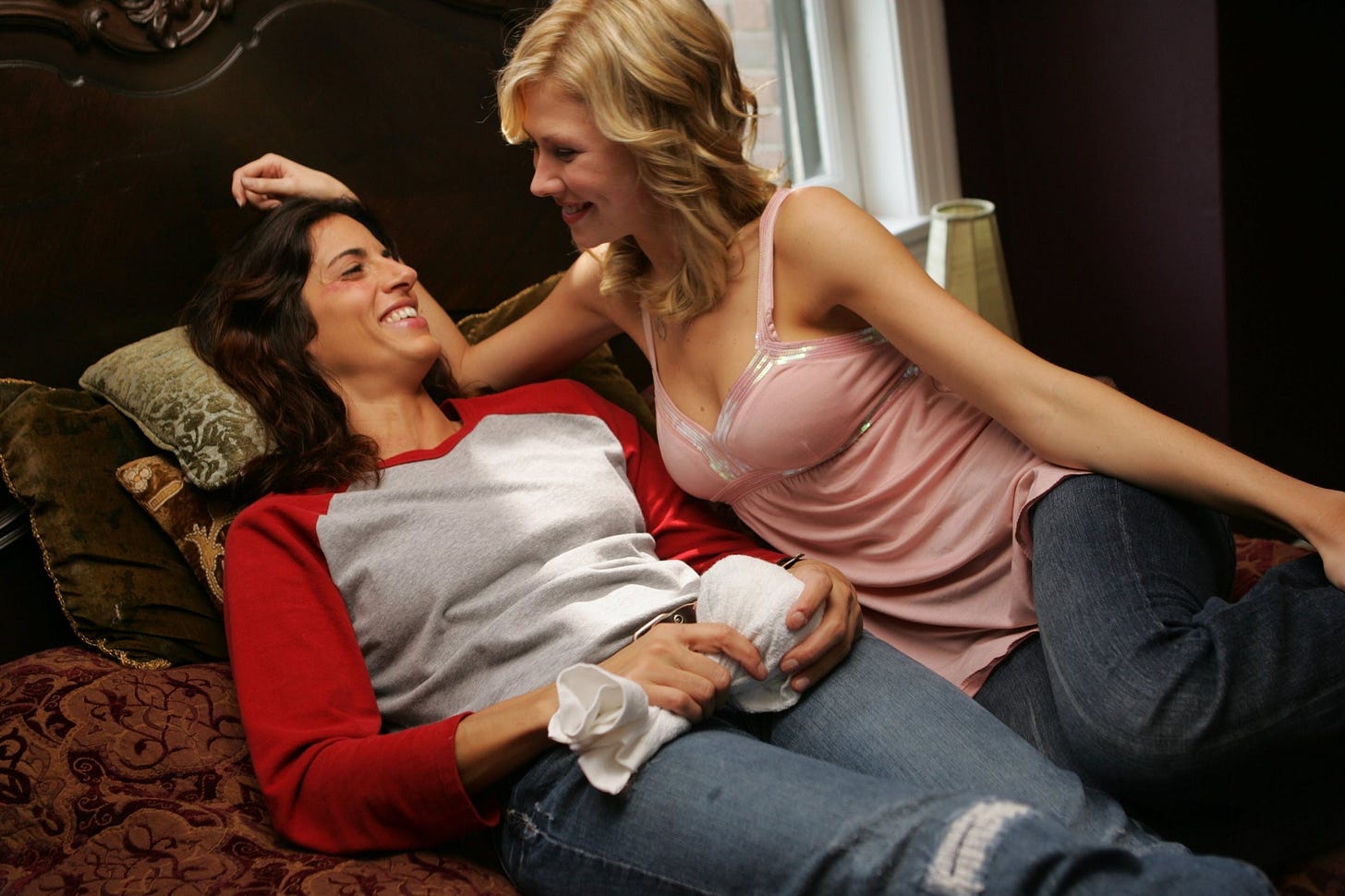out at the wedding
Film, 2007, 2.5 stars
Directed: Lee Friedlander
Written: Paula Goldberg
I'm in a dilemma over this film. Some parts were funny while other parts were decidedly unfunny. Some characters were consistent, while others weren't. So, on the balance of probabilities, is this a good film? Maddeningly, the answer is, "maybe".
The essential problem I have is that the premise is horribly flawed. Alex, a thirty-something woman who lives in New York, flies home for her sister's wedding. The two sisters have been engaged in a game of oneupmanship since childhood, and who can get married first is just another in a long line of petty competitions.
When Alex's gay best friend Jonathon accidentally starts a rumour at the wedding that Alex is a lesbian, Alex continues the ruse so that her sister Jeannie won't think that she made up "the gay thing" only to upstage her at her own wedding. Then, when Jeannie comes to New York to visit, Alex adds fuel to the fire by hiring a lesbian, Risa, to pose as her girlfriend. Thus begins the “fake dating” trope, which I realise many lesbians adore, but I simply can’t stand.
This is all a gross oversimplification of what is an extraordinarily convoluted plot. I haven't even mentioned Alex's black fiancé Dana who she is hiding from her family, the fact that she's told her in-laws that her family is dead, and that Jeannie discovers some girl-on-girl tendencies of her own and proves remarkably apt in a batting cage, which just proves she's gay really.
So, building on this rather shoddy premise means that the film's narrative structure is as precarious as the proverbial house of cards. It ploughs ahead regardless, throwing out sight gags and overly-precious wordplay with great abandon. In fact, pure enthusiasm almost saves the film from its own inbuilt flaws. I do say almost, because by the end the film has sped right past comedy, taken a detour at slapstick and cruised right into farce.
As much as I know many people disliked Friedlander's debut feature Girl Play, that film was more mature, and had a kind of warmth of feeling and depth of character that Out at the Wedding lacks. I think I was particularly put off by the lesbian character Risa (Cathy De Buono), who went from being a butch vegetarian to a lipstick-wearing meateater in the space of two weeks. Her character is deliberately softened as the film goes on. One second she's wearing flannel and emphasising a pair of shoulders that Amelie Mauresmo would be proud of, and the next she's a femme in heels and a halter top.
Despite these problems, there were some hilarious, laugh-out-loud moments, including a feisty cameo by Jill Bennett as Risa's ex-best friend who has stolen her girlfriend and is somewhat aggressively inclined. Alex's leather collar and flannel dyke-wannabe ensemble drew some more giggles, as did Jonathan's subtle-yet-ingenious and underhanded way of getting his new boyfriend to lose weight.
In the end though, this is not strictly a lesbian comedy. This is a comedy about two dysfunctional sisters that throws a modicum of homosexuality into the mix. (Certainly these two redefine the boundaries of sibling rivalry!) It is also a film about lies and deception and the underlying pain that causes someone to make up identities that are not their own.
Many kudos go to Paula Goldberg for writing a film whose frenetic pace never lets up. You might roll your eyes but you'll never be bored. I think some major fun could be had playing the Out at the Wedding drinking game. I would suggest a drink for every time somebody spots a celebrity lesbian cameo. Or perhaps, a sip for every time somebody makes fun of a gay cliché? You could get yourself nice and pickled by the end, and alcohol would just make the whole thing funnier.



